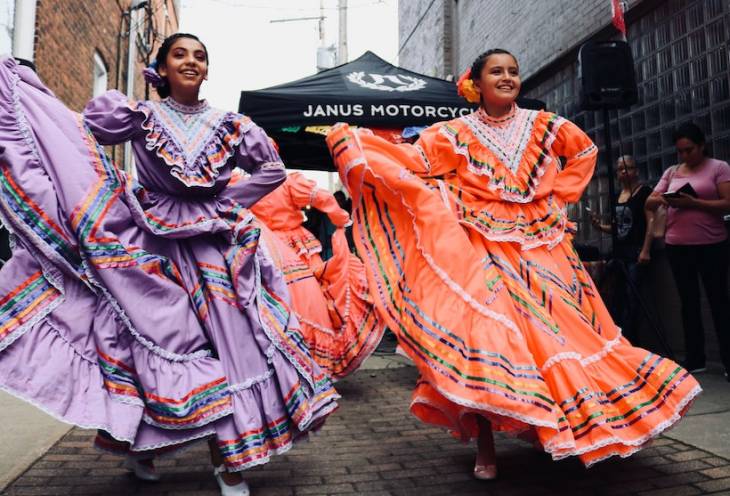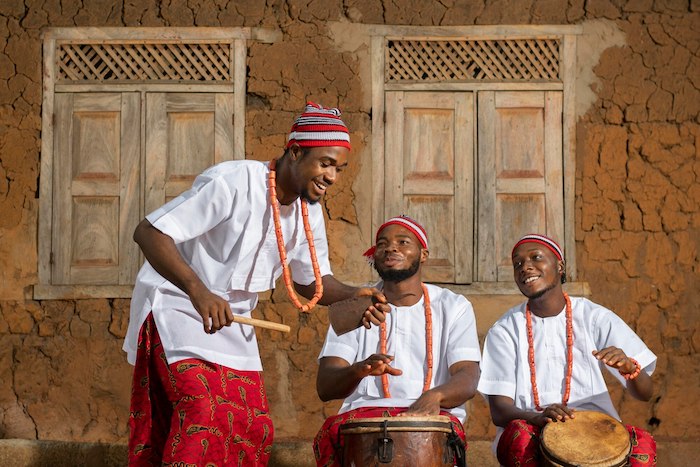How Culture Shapes Our Beliefs

The culture you’re raised in has a lot to do with the traditions, values, and beliefs you hold on to as an adult.
For example, in Western society, people are generally more individualistic, but in Eastern societies like Japan and China, they tend to be more collectivist.
While we might assume that these differences are due to the way people were raised by their families or friends as children, some of them have been shaped before birth—by genes that influence how our brains respond to cultural experiences.
How Your Heritage Influences Your Beliefs
In a recent study, researchers studied participants from 32 different countries across five continents to explore how culture and geography play into our beliefs. The team discovered that participants from East Asian countries tended to be more collectivist than people in European, Latin American, Middle Eastern, and African countries.
Members of collectivist cultures agreed more with statements like ‘I believe my family is extremely important,’ and ‘I must take care of my parents when they are old.’ On average, people from less-collective cultures believed that it was more important for individuals to focus on success and self-expression than relationships or traditions. Within groups, there were differences among age groups as well: Older people tended to agree more strongly with statements about collectivism than younger generations did.
Findings suggest that a combination of factors may influence how we view ourselves and our place in society—and even whether we're attracted to art over science—including what country we live in and what generation we belong to within it.
These findings also hint at something else worth noting: We all come from somewhere, and those who don't identify as either male or female do so because their identity doesn't fit within other categories, not because there aren't any appropriate options for them out there.
Should You Learn About Other Cultures?

It is beneficial to learn about other cultures. When you learn about other cultures, you gain a better understanding of your own beliefs and can even come to appreciate your own culture more. As a bonus, when you share your experience with others in your own culture, they may be more willing to listen than if you're just telling them something new and foreign.
Diversity is strength—cultural diversity is cultural strength. We're all a little biased; that's OK! Instead of trying to be objective, try seeing past those biases and accepting them as valid but different perspectives.
Learn from people whose opinions differ from yours; it could only make you a wiser and more well-rounded person (and maybe help make America great again).
Develop an Open Mind and Embrace Other Cultures
It's easy to assume your own culture is superior to others. As we grow up, though, our beliefs are often shaped by our environment—the media we consume, music we listen to, churches, or synagogues we attend.
So, unless you're willing to say that your culture and its influence on you is worse than someone else, it's important not to pass judgment on those who believe differently than you do.
Treating people fairly should come naturally—and it does when we focus on our similarities instead of differences. It might be hard for us as a society to move away from us.
Refrain from Judging Those Who Believe Differently Than You
As you travel around your community, both near and far, it's important to remember that what you see is never all there is. Just because a person chooses to dress or speak in a certain way doesn't mean they want to be judged. Try not to judge them before you get a chance to learn their story and hear their experiences.
With each new person you meet, try adopting an ‘I wonder what makes them tick’ mindset instead of an ‘I wonder if they think like me’ mindset. There's always more than meets the eye with people, so don't jump to conclusions about who someone is just because of how they look on first impression. Get to know them for who they are!
Accept that Everyone Is on Their Journey in Life

Sometimes it’s not about how right or wrong you are. Sometimes it’s just about finding what works for you and being okay with that. Every single person on earth has a different idea of happiness, and they aren’t going to get there by following your path. They may arrive at similar places, but they won’t necessarily follow your map.
If someone asks for advice—which everyone eventually does—offer it; just be ready to listen when they tell you something else is working better for them. It’s important to understand yourself before trying to understand anyone else—so focus on your journey.
Everyone is doing their best, even if their best isn’t as good as yours would have been (or maybe even should have been). There will always be people who disagree with you, so instead of wasting time arguing with those who don't want to hear your side, spend more time figuring out why they believe differently from you. Chances are there's room for discussion and growth in both viewpoints. There's no rule book in life except one.
Observe How Others Live Differently Than You Do

In an increasingly interconnected world, understanding how people from other cultures think is not only helpful for getting along with them (and avoiding offense), but it can be a huge career advantage too.
By putting yourself in other people’s shoes and challenging your own beliefs, you could learn about new business opportunities or uncover solutions to problems that were previously unsolvable.
Moreover, if you want to help make your community more inclusive and welcoming of different backgrounds, being familiar with different cultural norms is necessary.
And with travel more accessible than ever before—by plane, train, or automobile—it’s never been easier to get out and explore a culture very different from your own.
Talk with People Who Don’t Think Like You
Talking with people who have different beliefs from you can be uncomfortable. If you’re trying to understand why another culture or group of people thinks a certain way, it can take courage to do so. But doing so is an essential part of learning and understanding.
The more open-minded you are, the more likely it is that your views will evolve. Be brave and don’t shy away from talking to someone who doesn’t agree with you—even if they look like they could knock you out!
It's through open dialogue that we grow and learn about each other, which in turn contributes to building a better society for all of us. Have conversations with people whose beliefs are different than yours—and see how your perspective changes as a result.




















